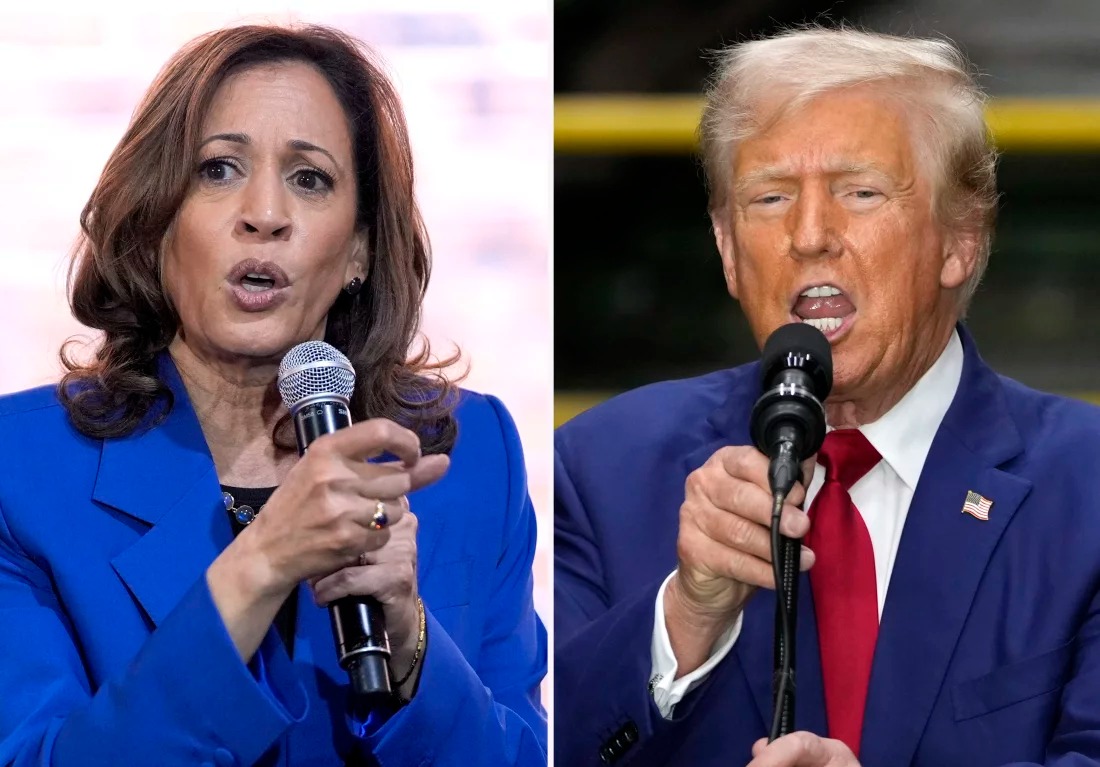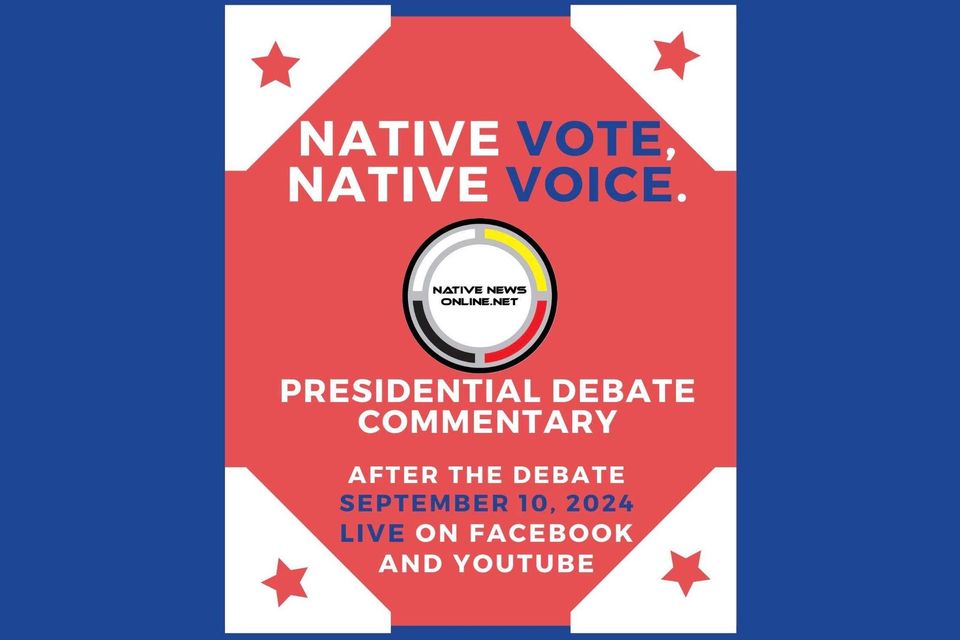
- Details
- By Marlon WhiteEagle
Native Vote 2024. The presidential debate between former President Donald Trump and Vice President Kamala Harris is set for Tuesday, Sep 10, 2024 at 9:00 p.m. - EDT. After weeks of speculation on whether Trump would participate in the debate, ABC will host what might be the only debate between the candidates in Philadelphia, Penn. at the National Constitution Center.
The event will allow Vice President Harris, a former prosecutor and California attorney general, to meet the former President Trump, who is a convicted felon, to tell the nation why they should be president of the United States.
The debate setting will be the first time Harris and Trump will meet in person. Since, Trump broke historic precedent by not attending the inauguration on January 20, 2021 when Harris was sworn in to be vice president, he did not meet her and their paths have never crossed.
The 90-minute debate will be moderated by ABC news anchors David Muir and Linsey Davis. The event will mirror the June debate between President Joe Biden and Trump, which proved campaign ending for Biden’s bid for reelection to the White House.
Both candidates meet the criteria and have agreed to ABC’s rules and format. The candidate’s microphone will only be on when it’s their turn to speak. There will be no studio audience.
There will be two commercial breaks, and candidates are not allowed to talk to their staff during the breaks. The candidates are not allowed to bring props or pre-written material. Candidates will be given a pen, a notepad, and a glass of water.
Candidates are eligible to participate if they meet the Constitutional requirements stated in Article II, Section I of the U.S. Constitution. They must have a Statement of Candidacy filed with the Federal Election Commission. Candidates must also appear on sufficient state ballots certified by the Secretary of State or relevant election authority in each state to attain a majority of electoral votes (270).
A coin flip occurred on Tuesday, September 3, 2024 that determined podium placement and the order of closing statements. Trump won the coin toss and chose to deliver the last closing statement, while Harris chose the right podium, or stage left for viewers.
The incumbent party is introduced first by the moderators. No opening statements will be given, as moderators will go directly to the first question. No topics or questions are shared with the campaigns or the candidates.
Candidates will be asked a question and will have two minutes to answer, then the other candidate will be given twp minutes to respond, then the first candidate will be given one minute to follow up, clarify or a rebuttal response.
Candidates are not allowed to ask questions to the other candidate.

Late Monday afternoon, Harris flew from Pittsburg where she has been prepping for debate since last week to Philadelphia. Her running mate, Minnesota Gov. Tim Walz is campaigning in Texas and later in Nevada.
Trump is meeting with senior advisors, policy experts, and party allies to prepare for the debate. Trump will also meet via phone with evangelical leaders. Trump running mate U.S. Sen. J.D. Vance (R-OH) is being interviewed by Tucker Carlson.
The debate comes just 55 days before voters cast their ballots. Polls show that the election is a tight race. Political pundits put more emphasis on Harris’ performance, who has been criticized for not interacting with the press since she became the nominee.
Trump has a base of loyal supporters, who overlook the fact he is a convicted felon with 34 counts and his insults. However, he’ll need to appeal to voters outside his base to win in November.
Watch-parties are popping up all across the Nation and in Indian Country, with some hosted by tribal communities.
Native News Online is hosting Native Vote, Native Voice, a post-debate commentary event, live on Facebook and YouTube at 10:30 pm EDT,
Be sure to tune in to hear reaction from Native News Online editorial staff.
Help us defend tribal sovereignty.
At Native News Online, our mission is rooted in telling the stories that strengthen sovereignty and uplift Indigenous voices — not just at year’s end, but every single day.
Because of your generosity last year, we were able to keep our reporters on the ground in tribal communities, at national gatherings and in the halls of Congress — covering the issues that matter most to Indian Country: sovereignty, culture, education, health and economic opportunity.
That support sustained us through a tough year in 2025. Now, as we look to the year ahead, we need your help right now to ensure warrior journalism remains strong — reporting that defends tribal sovereignty, amplifies Native truth, and holds power accountable.
 The stakes couldn't be higher. Your support keeps Native voices heard, Native stories told and Native sovereignty defended.
The stakes couldn't be higher. Your support keeps Native voices heard, Native stories told and Native sovereignty defended.
Stand with Warrior Journalism today.
Levi Rickert (Potawatomi), Editor & Publisher
